Epoxy primer suitable for pretreating smooth, non-absorbent substrates.
The two-component Flow Resin Epoxy Primer for Smooth Surfaces is specially designed for applying floor coatings and screeds to existing smooth surfaces such as slightly porous tile, metal and glass.
This primer sticks to the surface, unlike primers for dense substrates that soak deep into the subfloor. Deep penetrating primers typically offer higher load-bearing capacity and are suitable for heavier loads.
Applications
- Unglazed baked tiles
- Concrete floors
- Metal floors or parts
- Anhydrite floors
- Gypsum-bonded floors
- Cementitious floors
- Adhesive primer for smoothing compound (if sanded in)
- Glass
Technical properties
- Glossy finish
- Seamless and liquid-proof
- User-friendly
- Excellent adhesion
- Contains anticrater additive
- Good venting
- To be sprinkled with sand
- Solvent-free
- Easy to clean
- High covering power
Consumption
75-150 g/m², depending on the substrate. Average consumption: 100 g/m².
Required tools
Brush, nylon rollers with bracket (possibly with telescopic handle), gloves, mixing rod, mixing bucket and safety glasses.
Preparation of the substrate
Make sure the substrate is dry and dust-free. Remove cement and concrete residue by sanding or grinding. Roughen dense substrates by dust-free blasting or intensive sanding. Clean contaminated surfaces chemically and sand after. Treat oil stains with cat litter or ammonia. Repair minor damage with Flow Resin Epoxy putty, larger ones with Flow Resin Epoxy repair mortar. Finish edges with acrylic sealant and use tape for tight lines.
Application on glass table
Because of its excellent adhesion to glass, this primer is ideal for applying a new coat of color to a glass table, to be finished with epoxy casting resin.
Application on tiles
For glazed tiles, such as ceramic tiles, use Flow Resin Primer for Tile Floors, which, thanks to an etching action, provides adhesion at the microscopic level in the glaze.

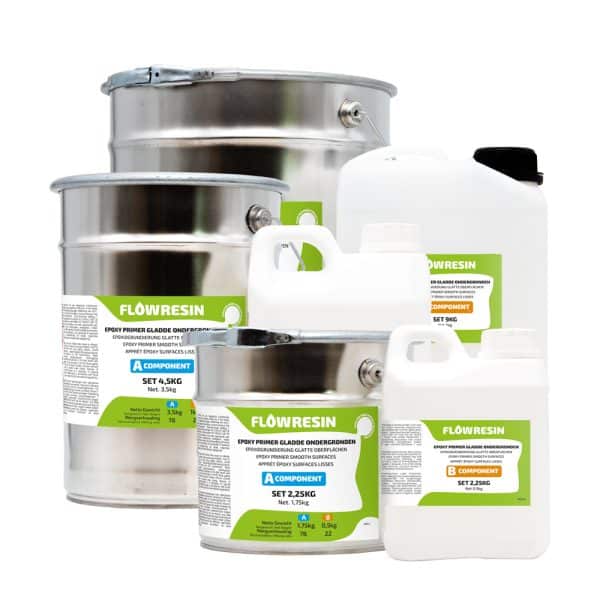
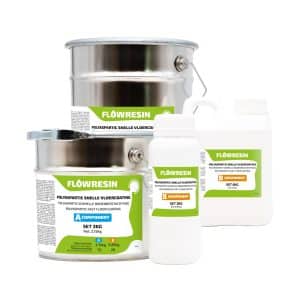
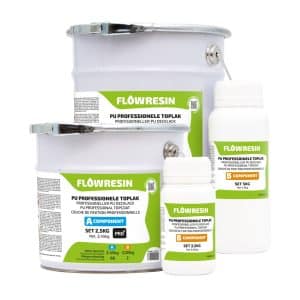

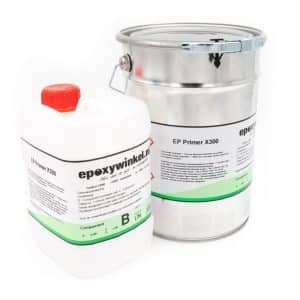
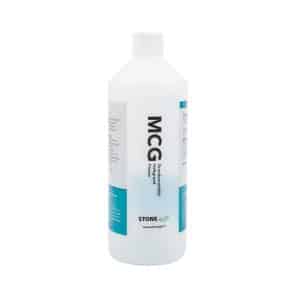
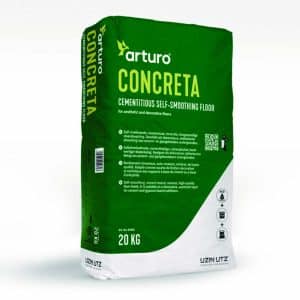
Reviews
There are no reviews yet.